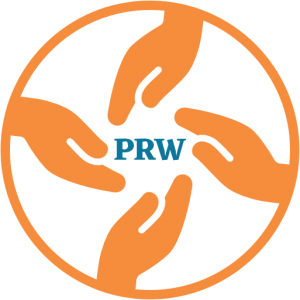Bryant Thompson
Assistant Professor
Weber State University
bryantthompson@weber.edu
Website
Related Research Interests
My research centers on the myriad processes underlying positive interpersonal relationships at work. Interpersonal relationships are an important mechanism in shaping how we perceive ourselves in the workplace and have a significant influence on how we view our work experience—often fostering meaning at work while influencing workplace performance. I am interested in three interrelated streams of research.
Relational Identity Negotiation: I examine how individuals negotiate desirable work relationships—especially with supervisors. In my dissertation, I aim to answer three research questions: (1) How does a subordinate negotiate a relational identity with his or her supervisor?; (2) What factors (i.e. antecedents) influence a subordinate’s ability and willingness to negotiate a positive relational identity with his or her supervisor?; and (3) What key relational outcomes are likely to ensue following relational identity negotiation? Thus, in an effort to answer these three questions, my dissertation examines the antecedents and outcomes of relational identity negotiation. In so doing, I look squarely at the relational context in an effort to inform our understanding more deeply concerning an essential building block of organizations—supervisor-subordinate relationships. This research emphasizes the symbolic interactionist perspective in interpersonal relationships—which suggests, in part, that role relationships emerge and evolve according to the specified manner in which individuals use their agency to enact interpersonal relationships. I likewise employ a positive identity lens and assert that individuals strive to form a positive relational identity.
Interpersonal Relationship Quality: I assess how rich and highly personalized positive interactions within interpersonal relationships induce positive outcomes and forge resilient dyads. I am interested in how the supervisor’s socialization practices and relational exchange quality with the newcomer shape positive outcomes. I also examine how dyads form resilient interpersonal relationships vis-à-vis positive dyadic interactions. I suggest that interpersonal forgiveness and relational exchange are two essential elements of dyadic resilience.
Interpersonal Forgiveness: I examine how and why individuals remove negative thoughts and feelings toward the relational other in the wake of offensive behavior within the dyad. Scholars have often focused more on negative responses to offenses (e.g. revenge) than positive responses to offenses (e.g. forgiveness). I examine two forgiveness motives (other-interested and self-interested) and two forgiveness modes (removing the negative and restoring the positive). I suggest that these types of forgiveness expand our knowledge of the forgiveness domain. I also propose a theoretical framework that suggests that one’s approach towards forgiveness is shaped by the extent to which he or she identifies with the relational other. Finally, I examine the conditions under which individuals perceive offensive behavior as a means by which to develop resilient relationships—relationships which become stronger as a result of adversity within the dyad.
Related Publications
- Sluss, D.M., van Dick, R., & Thompson, B.S. 2010. Role theory in organizations: A relational perspective. In S. Zedeck (Ed.), APA handbook of industrial and organizational psychology, Vol. 1: Building and helping the organization: 505-534. Washington, DC: American Psychological Association.
- Sluss, D.M., & Thompson, B.S. 2009. Socialization and social exchange: Leader-member exchange as mediator between tactics and attachment. Best Paper Proceedings of the 2009 Academy of Management Conference, Chicago
- Sluss, D.M., & Thompson, B.S. Socializing the newcomer: The role of leader-member exchange. Organizational Behavior and Human Decision Processes. (2nd review)
- Thompson, B.S., & Ravlin, E.C. Interpersonal forgiveness and relational exchange: Forging a framework of dyadic resilience. Organization Science. (1st review)
